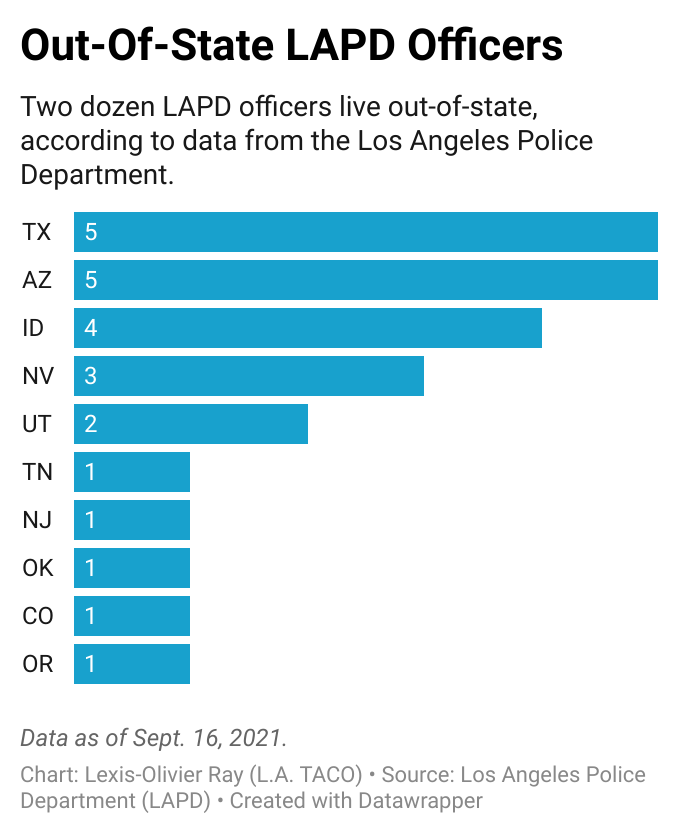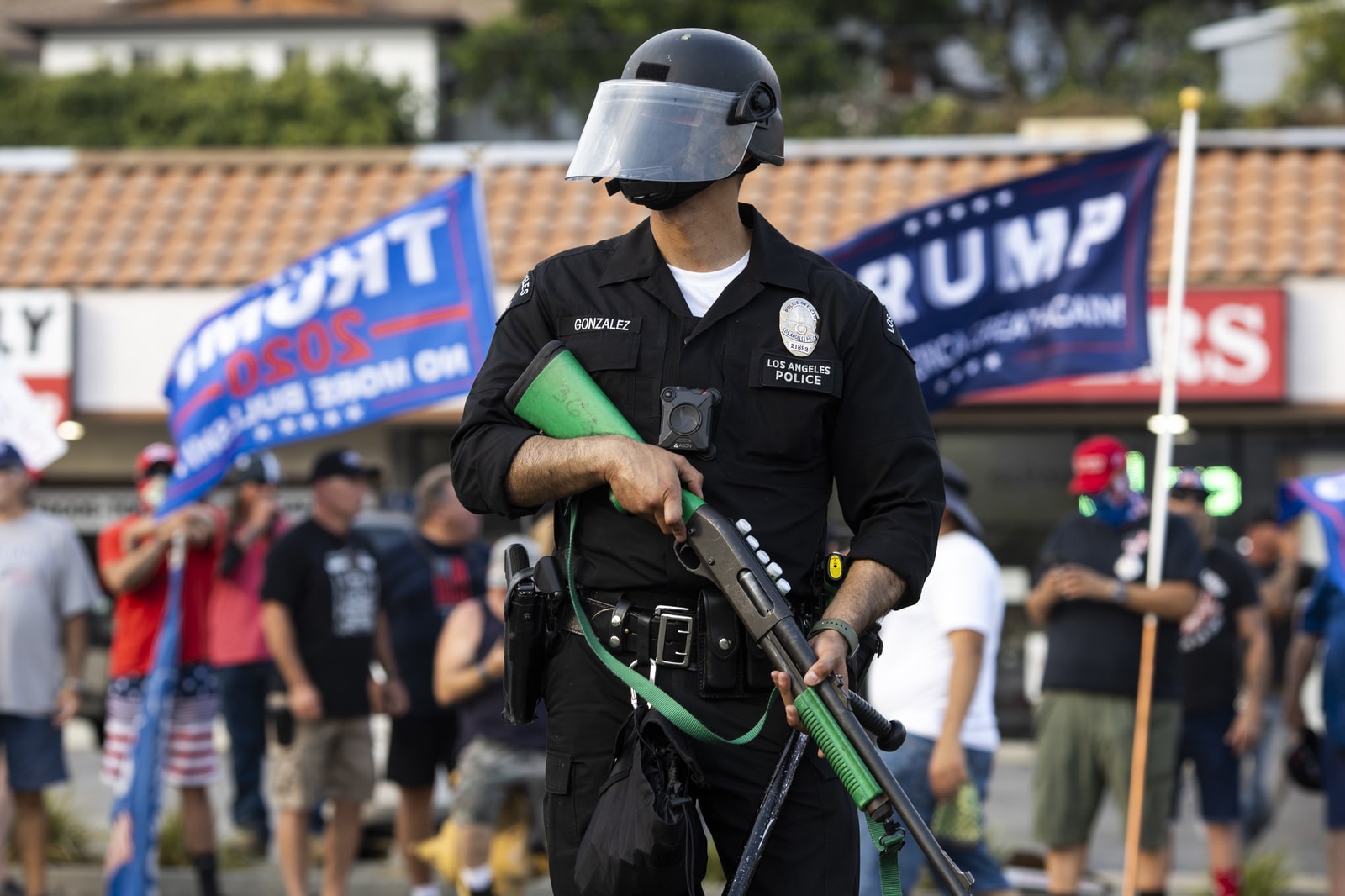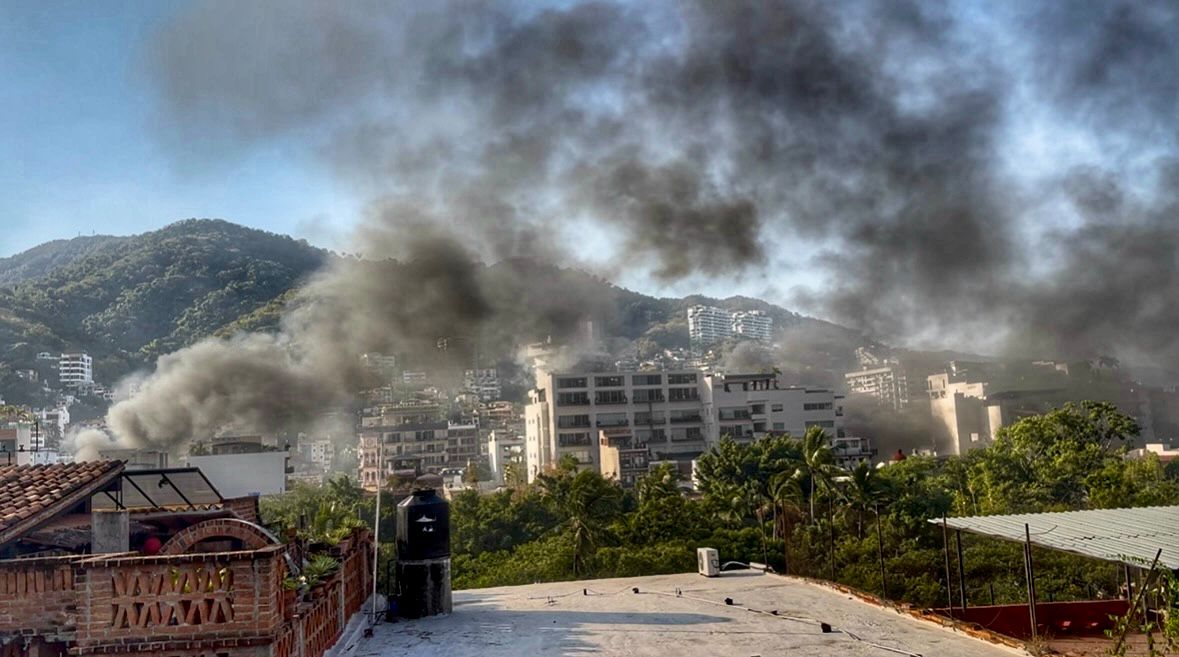[dropcap size=big]T[/dropcap]wo thousand and seven hundred miles—that’s the distance between L.A. and the capital of the East Coast state where one current Los Angeles Police Department (LAPD) officer lives. According to recent data obtained by L.A. TACO through the California Public Records Act, at least two dozen police officers live outside of California.
Texas and Arizona are tied for the top out-of-state destinations for Los Angeles police; a combined ten officers call the state best known for the Grand Canyon and the Lone Star State home. Idaho falls in second, followed closely by Nevada.
While the majority of police officers that reportedly live beyond California reside in neighboring western states, at least one officer lives in Tennessee, and another lives as far as...New Jersey, according to LAPD data. It's unclear how much time these officers actually spend in states outside of California.
The list of officers living outside of the Golden State includes lower-ranking junior personnel that have been with the department at least three to four years as well as detectives, sergeants, and at least two senior-level lieutenants, according to data provided by the LAPD and a publicly available roster of sworn department personnel. L.A. TACO was unable to identify 12 of the officers by name and rank.
“From The Outside In”
The American Civil Liberties Union (ACLU) first began looking into LAPD officers living outside of the city during the early 90s. In 1994 they published a report called “From the Outside In,” which found that more than 83 percent of all LAPD officers lived outside of the City of Los Angeles. “The racial and ethnic diversity in which officers and their families reside, socialize and go about their personal routines generally bear little resemblance to the city the officers police,” the report stated. An L.A. Times article and data analysis from 2014 similarly found that only 21 percent of Los Angeles police officers received their paychecks at a residence within city limits.
The idea of sometimes well-paid city employees living out of state angers some taxpayers who believe that police officers and other city workers should live close to the communities that they work in, especially if they’re considered emergency responders. Earlier this month, Los Angeles Times columnist Steve Lopez revealed that more than 100 firefighters live out of state, including a captain who lives in Texas, makes more than $200,000 per year and was recently seen on video attacking the city for issuing a vaccine mandate for city employees.
We should have officers who are patrolling our communities that have some skin in the game, that are invested in the community. - William Gude
Reached via email, Los Angeles Police Chief Michel Moore told L.A. TACO: “We will need to research this further to understand who these individuals are and their assignment. I do believe an LAPD officer living out of state would pose significant logistical issues of their ability to meet the demands of our work in Los Angeles.”
Recent news reports suggest that at least one detective works in the Force Investigation Unit (FID) —the unit tasked with investigating police use of force instances—while they live in Idaho. Another lieutenant supervised a protest outside of Los Angeles Mayor Eric Garcetti’s house as recently as July.
“We should have officers who are patrolling our communities that have some skin in the game, that are invested in the community,” said William Gude, a Hollywood resident. He documents cops in his free time and has filed hundreds of complaints against the LAPD for alleged misconduct. “Ideally, you would like them to live in a neighborhood they patrol.”

Gude first found out about out-of-state cops while chatting with an unidentified officer that assists him with his work. “He mentioned ‘you'd be surprised how many cops live out of state.’ I really couldn't believe it until he explained to me the way schedules work.”
According to Gude’s source, officers can work three days straight and then take four days off. The following week they can reverse their schedule so they have a total of eight days off and then six days working. “So that really stood out to me that one, they could have such a schedule that would allow them to commute, but also the fact that they make enough money that they can commute to other states.” Additionally, Gude’s source told him that officers would sometimes pool resources to rent a crash-pad close by the station where they work.
Although BLM-LA firmly believes in police abolition, Minor tells L.A. TACO that until they achieve that goal, they feel “police should live in the jurisdiction that pays their salary.”
In the past, city workers who live outside of L.A. have defended their choices, claiming they’re seeking out more affordable housing markets or school systems that are perceived as better than what’s offered here. Last year the median price of a home in Los Angeles County climbed to more than $770,000. Meanwhile, the average LAPD officer earns more than $120,000, and the highest-paid officials make more than twice that amount. Some experts have said that the city should create incentives and resources if they want employees to live within the city.
In other instances, like the case of The LAFD captain that went viral, the decision to reside out of state seems to have less to do with money. “I am a captain of the Los Angeles City Fire Department. I commute back and forth. I moved to Texas for a reason, for the freedoms that it offers,” Captain Cristian Granucci was quoted as saying in a 2018 online article.
“If one is paid by the government, one should live within that government’s jurisdictional area,” Paula Minor, organizer and Police Accountability Team Leader for Black Lives Matter Los Angeles (BLM-LA), told L.A. TACO in a statement. “However, we realize that where police live cannot alone improve the relationship with those it polices.”
BLM-LA believes that prosecuting cops that kill civilians, ending qualified immunity, making police carry their own professional liability insurance, and holding cops that harm people accountable would improve relations between police and the communities they work in.
Although BLM-LA firmly believes in police abolition, Minor tells L.A. TACO that until they achieve that goal, they feel “police should live in the jurisdiction that pays their salary.”






